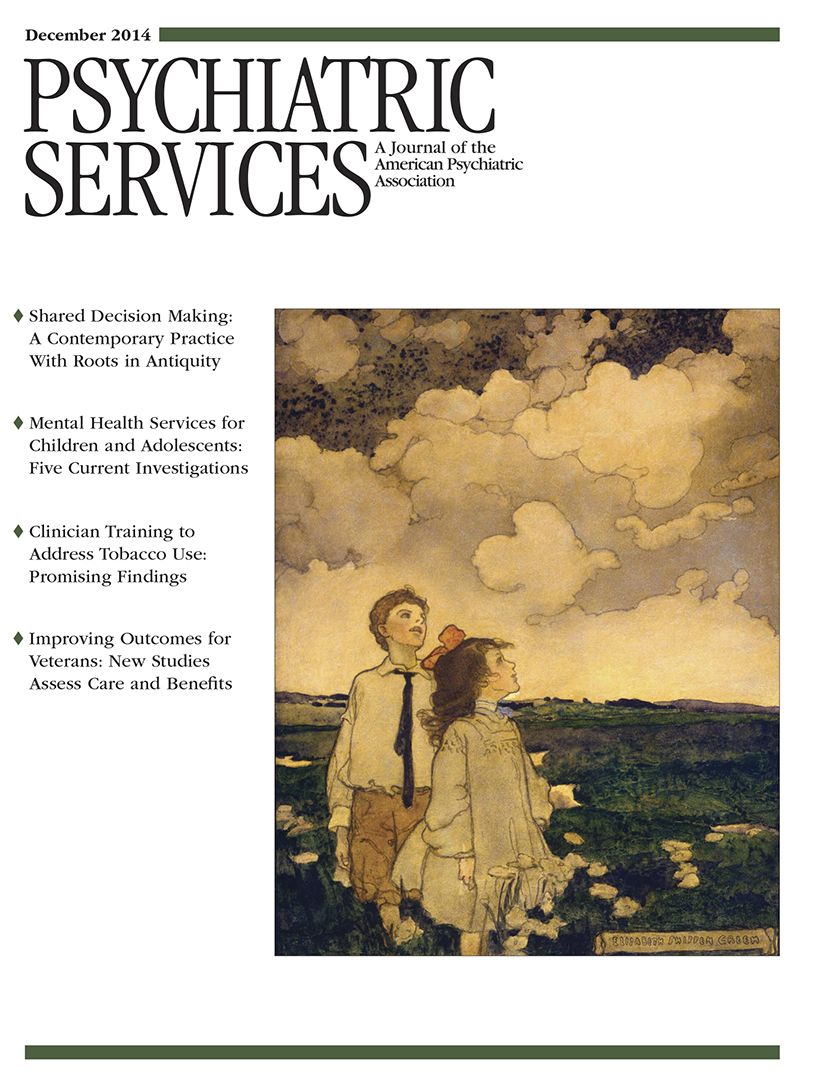Social Inequalities and Antidepressant Use in Canada and France
To the Editor: In their interesting analysis of French universal health coverage in the May issue, which highlighted the role of social inequalities, Bocquier and colleagues (1) did not examine the impact that cost sharing may have on treatment adherence of individuals with low incomes. In the francophone province of Quebec, Canada, a public drug plan was set up in 1996 that included direct billing by pharmacists to the public plan in addition to a cost-sharing scheme. In 2001, a report based on analyses of health administrative databases showed that for elderly persons and welfare recipients, introduction of the universal drug plan was followed by reduction in use of essential drugs and a high rate of serious adverse events (hospitalization, nursing home admission, and mortality) (2). This led to a policy reversal and cost-sharing exemptions for low-income welfare recipients. Our own study of patients with depression in Quebec in 2006, which used the same administrative databases, showed that antidepressant use did not differ between individuals from low-socioeconomic neighborhoods and those from high-socioeconomic neighborhoods (3).
Bocquier and colleagues (1) showed how personal and provider characteristics might explain the low adherence to antidepressant therapy in their study. According to the authors, cost sharing or other economic disincentives are not used in France. Low-income individuals whose expenditures for drugs were reimbursed entirely by Couverture Maladie Universelle Complémentaire (Complementary Universal Health Insurance) (CMUC) had lower adherence. However, can the authors guarantee that everywhere in France individuals who are covered by CMUC never have to deal with refusals by some pharmacists to fill prescriptions as a result of reimbursement delays by CMUC (4)?
On the other hand, the absolute rate of antidepressant discontinuation reported by Bocquier and colleagues seems very high (71.6%), and the authors recognized that the criteria they used may have influenced the rate. For example, if two individuals had received three prescriptions of 28 days in the course of six months and the first individual took one dose out of two for six months and the second took all of it in three months, both would be considered early discontinuers. But should only the second one be considered to have discontinued early? Using criteria for continuation set by a Canadian research group, Sewitch and colleagues (3) found that the proportion of individuals among Quebec’s elderly patients who were considered to discontinue early was similar to that found by Bocquier and colleagues. But practices may have improved since then.
1 : Social inequalities in early antidepressant discontinuation. Psychiatric Services 65:618–625, 2014Link, Google Scholar
2 : Adverse events associated with prescription drug cost-sharing among poor and elderly persons. JAMA 285:421–429, 2001Crossref, Medline, Google Scholar
3 : Health inequities in mood disorders based on material and social deprivation in dwelling sectors [in French]. Canadian Journal of Psychiatry 57:772–781, 2012Crossref, Medline, Google Scholar
4 : Health care refusal against CMUC beneficiaries: a single-blind study among a representative sample of physicians (Paris-based GPs, gynecologists, ophthalmologists, radiologists and dentists) [in French]. Paris, Institut de Recherche et Documentation en Economie de la Santé, 2009. Available at www.cmu.fr/fichier-utilisateur/fichiers/refus_soins_testing2009_rapport.pdfGoogle Scholar



